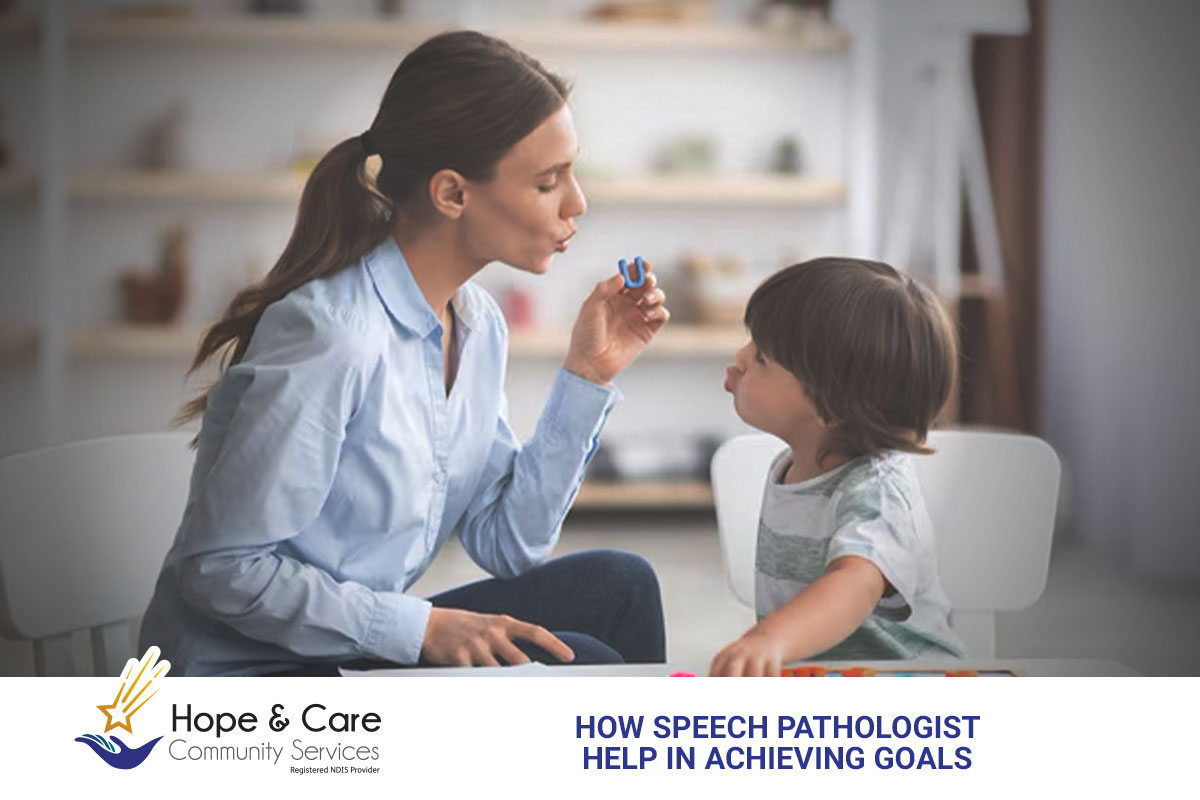
Communication is the key to connecting, learning and thriving in every aspect of life. For individuals facing speech and language challenges, the journey to effective communication becomes easier with the guidance of a skilled speech pathologists. At Hope & Care Community Services, we help participants break barriers, build confidence and achieve their communication dreams.
Let’s dive into how speech pathologists work, the strategies they use and the life-changing impact they create for individuals and families.
Who Are Speech Pathologists and What Do They Do?
Speech pathologists are professionals who help individuals overcome challenges with communication and swallowing. They do not just treat symptoms—they work to uncover the root causes and empower participants to grow through evidence-based therapy.
Their expertise includes:
Speech Clarity: Helping people pronounce words and sounds correctly.
Language Development: Supporting both understanding (receptive language) and expression (expressive language).
Social Interaction Skills: Teaching practical ways to communicate in everyday settings.
Fluency Assistance: Guiding individuals to speak with confidence and ease.
Voice Therapy: Enhancing vocal quality and strength.
Swallowing Therapy: Ensuring safe and enjoyable eating experiences.
Speech pathologists use their knowledge to tackle a wide range of challenges, giving individuals the tools they need to thrive.
How Speech Pathologists Help You Reach Your Goals
Speech therapy does not follow a one-size-fits-all approach. Instead, speech pathologists tailor every step of the process to align with each participant’s unique needs. Here’s how they make a difference:
Starting with an In-Depth Assessment
Speech pathologists carefully assess each participant’s abilities to identify challenges and strengths. They evaluate speech, language, swallowing and even social communication skills. With this comprehensive understanding, they create a roadmap for success.
Setting Clear and Achievable Goals
Next, they collaborate with you, your family and caregivers to design personalised goals. These goals focus on real-world outcomes, such as speaking confidently in a group, improving vocabulary, or learning alternative communication methods.
Delivering Tailored Therapy Sessions
Through individual or group sessions, speech pathologists introduce activities and strategies designed specifically for you. Whether practicing articulation drills, role-playing conversations, or using communication devices, every step moves you closer to your goals.
Tracking Progress and Adjusting Strategies
Speech therapists regularly review your progress and make adjustments when necessary. As you grow, they refine the plan to ensure it stays relevant and impactful.
What Techniques Do Speech Pathologists Use?
Speech pathologists use a variety of practical and proven techniques to ensure every participant benefits from therapy. Some common methods include:
Articulation Practice: Repeating sounds and words to improve clarity.
Interactive Games: Making learning fun with language-rich activities.
Social Communication Training: Teaching how to read social cues, maintain conversations and express needs.
Augmentative and Alternative Communication (AAC): Introducing tools like apps or devices for those with limited verbal ability.
Voice Exercises: Strengthening vocal cords and enhancing speech delivery.
Swallowing Strategies: Guiding participants through exercises for safe and effective eating.
Why Early Intervention Matters
When it comes to speech therapy, starting early can make all the difference. Early intervention enables participants to overcome challenges before they impact other areas of life. It also lays a strong foundation for academic success, social integration and overall independence.
By acting early, families and caregivers can prevent communication barriers from growing and ensure participants enjoy a smoother path toward their goals.
How Speech Pathology Supports NDIS Goals
Under the National Disability Insurance Scheme (NDIS), speech pathology is a crucial support for many participants. It helps them build essential communication skills, enhances their independence and even provides access to assistive technologies like AAC devices.
At Hope & Care Community Services, we collaborate with participants and their families to align therapy with their NDIS plans. This ensures that our services are not only effective but also meet the specific goals outlined in each participant’s plan.
What Makes Hope & Care Community Services Unique?
At Hope & Care Community Services, we are committed to helping you succeed in your communication journey. Here’s what sets us apart:
- Holistic Approach: We combine speech therapy with other supports like occupational therapy to address every aspect of your development.
- Family-First Mindset: We involve families and caregivers in therapy, making it easier to practice skills at home and in the community.
- Customised Care: Every therapy plan is unique, reflecting your abilities, preferences and goals.
- Expert Team: Our experienced speech pathologists bring compassion to every session.
Why Speech Therapy Changes Lives
Speech therapy is more than just learning to talk—it is about unlocking potential. Participants not only gain better communication skills but also build confidence, strengthen relationships and enjoy a higher quality of life.
Empower Your Communication Today
At Hope & Care Community Services, we are passionate about helping individuals overcome barriers and achieve their goals. With our experienced speech pathologists by your side, you can gain the confidence to communicate clearly, connect meaningfully and live more independently.
Want to learn more? Read other articles :
- Redefine Independence your own way – with HCCS
- Who’s Who: The Key Terms of Your NDIS Plan
- Foundational Supports: Building Blocks of NDIS Success
HCCS is a registered NDIS provider. Learn more about our services.
♥ We are available in Brisbane! – Our team is just a call away!
